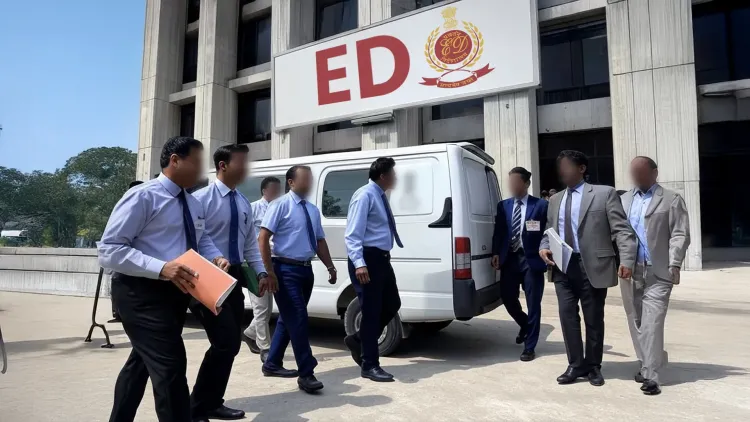Did ED Uncover a Web of Benami Companies in a ₹1,266 Crore Bank Fraud?

Synopsis
Key Takeaways
- ED's investigation highlights the fight against financial corruption.
- Seizure of documents reveals extensive fraud networks.
- Impact on SBI raises concerns about banking security.
- Financial literacy is crucial for public awareness.
- Government agencies are ramping up efforts to combat money laundering.
Bhopal, Aug 5 (NationPress) The Enforcement Directorate has confiscated critical documents linked to benami companies and properties during a raid at Advantage Overseas Pvt. Ltd. in connection with a staggering ₹1,266 crore bank fraud case, according to an official report released on Tuesday.
The Bhopal Zonal Office initiated search operations regarding Advantage Overseas Pvt. Ltd. (AOPL) under the Prevention of Money Laundering Act (PMLA), 2002.
This search operation yielded notable incriminating evidence, including documents that demonstrate the operation of numerous companies registered under the names of employees or benamidars to facilitate the laundering of Proceeds of Crime, as stated by the ED.
The investigation into the company was triggered by the filing of an FIR alleging that AOPL caused a loss of approximately ₹1,266.63 crore to the State Bank of India (SBI).
The ED's probe uncovered that AOPL deceived the bank by inflating its turnover by 100 times in its account statements to reap undue advantages, conducted related party transactions, and diverted bank funds under the pretense of unsecured loans to themselves and affiliated entities through 73 different channels.
Subsequent to redirecting funds, AOPL declared bankruptcy, prompting SBI to submit an application to the National Company Law Tribunal.
During the search, the ED seized vital documents, which revealed that the company's director and his associates had amassed significant movable and immovable assets both within India and abroad.
The assets identified during the ongoing searches are currently valued at over ₹300 crore, as reported by the ED.
Previously, the Bank Security and Frauds Cell of the Central Bureau of Investigation in New Delhi filed an FIR against the company following a formal complaint.
This FIR was lodged under multiple sections of the Indian Penal Code and the Prevention of Corruption Act, 1988, against Advantage Overseas Pvt. Ltd. (the borrower company), its directors, related individuals, and unidentified public servants.
Those implicated in the FIR are facing charges for offenses including criminal conspiracy aimed at cheating, forgery of valuable security, and causing a financial loss nearing ₹1,266.63 crore to SBI.









